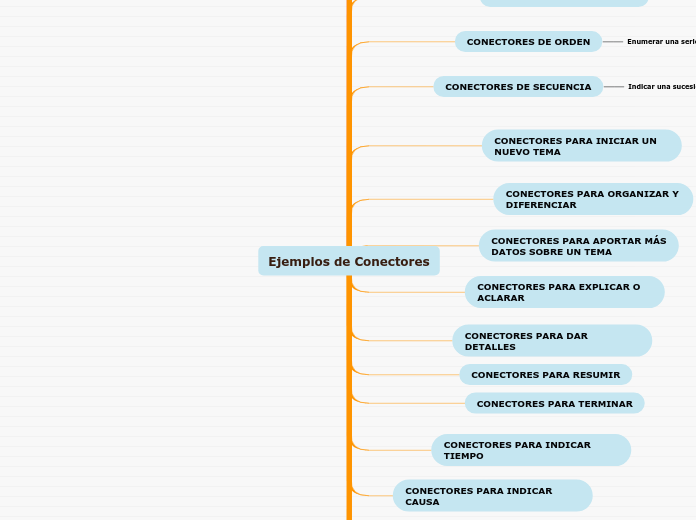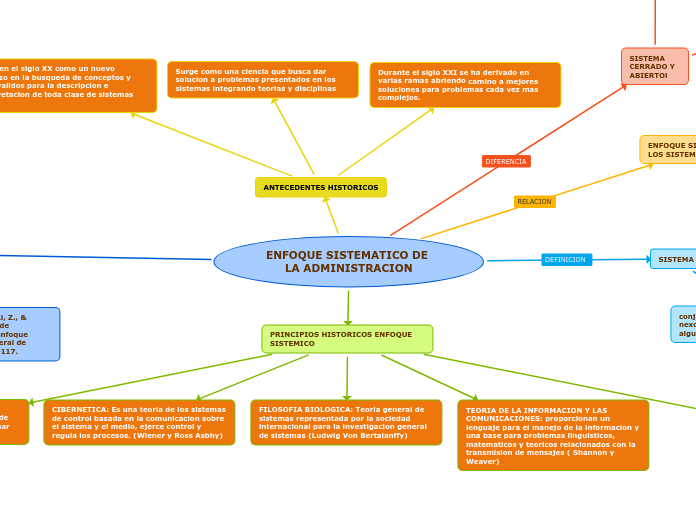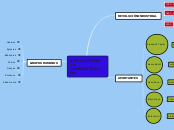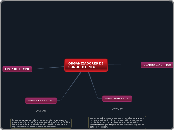Ejemplos de Conectores
To name your story, you have to think about the overall message and what you want your audience to understand from the story. Also, make it relevant and easy to remember.
CONECTORES DE CONDICIÓN
CONECTORES DE ESPACIO
CONECTORES PARA MOSTRAR ENFASIS
CONECTORES PARA MOSTRAR SEMEJANZA
CONECTORES DE EJEMPLIFICACIÓN
CONECTORES PARA INDICAR CAUSA
CONECTORES PARA INDICAR TIEMPO
CONECTORES PARA TERMINAR
CONECTORES PARA RESUMIR
CONECTORES PARA DAR DETALLES
CONECTORES PARA EXPLICAR O ACLARAR
CONECTORES PARA APORTAR MÁS DATOS SOBRE UN TEMA
CONECTORES PARA ORGANIZAR Y DIFERENCIAR
CONECTORES PARA INICIAR UN NUEVO TEMA
CONECTORES DE SECUENCIA
Indicar una sucesión de ideas.
CONECTORES DE ORDEN
Enumerar una serie de puntos.
CONECTORES DE EVIDENCIA
Recordar un punto obvio.
CONECTORES DE EQUIVALENCIA
Señalar algo similar pero de manera técnica.
CONECTORES DE ADICIÓN
Adjuntar ideas.
CONECTORES DE CONCESIÓN
Indicar una negación parcial.
CONECTORES DE OPOSICIÓN O CONTRASTE
The ending of a story is essential. We all know that if the ending is weak, what happened before loses its importance. So make it unpredictable, but fair. A resolved ending answers all the questions and ties up any loose threads from the plot.
Señalar relaciones de oposición.
This is the moment when the main character surpasses the last obstacle and finally faces their greatest challenge.
The climax usually follows one of these patterns:
- realization
- resolution
- choice
Type in your answer.
CONECTORES DE CONSECUENCIA
The middle of the story is where you add layers of complications that will lead to the end. Reveal more about the character's journey. Did their personality go through changes? How did they overcome the challenges? And as you build up the story’s central conflict, make it more personal to that character. Also, from the middle act, you have to lead into the final act.
Hacer saber lo que sigue.
Your character(s) need(s) motivation in order to solve the challenge(s).
CONECTORES DE CAUSA
In the beginning of the story (or the exposition), you will need to introduce the setting and characters. You might also want to introduce the main conflict. This part of the story is important because it gives the reader necessary background information and maybe even a first insight into a character’s personality.
Señalar el motivo o razón de algo que sucede.
Characters are essential to a good story. Usually, the protagonist(s) is/are the most affected by the plot. Introduce a character by focusing on their actions, interests, and occupation, as the physical appearance doesn't make a difference in most cases.
Topic principal










